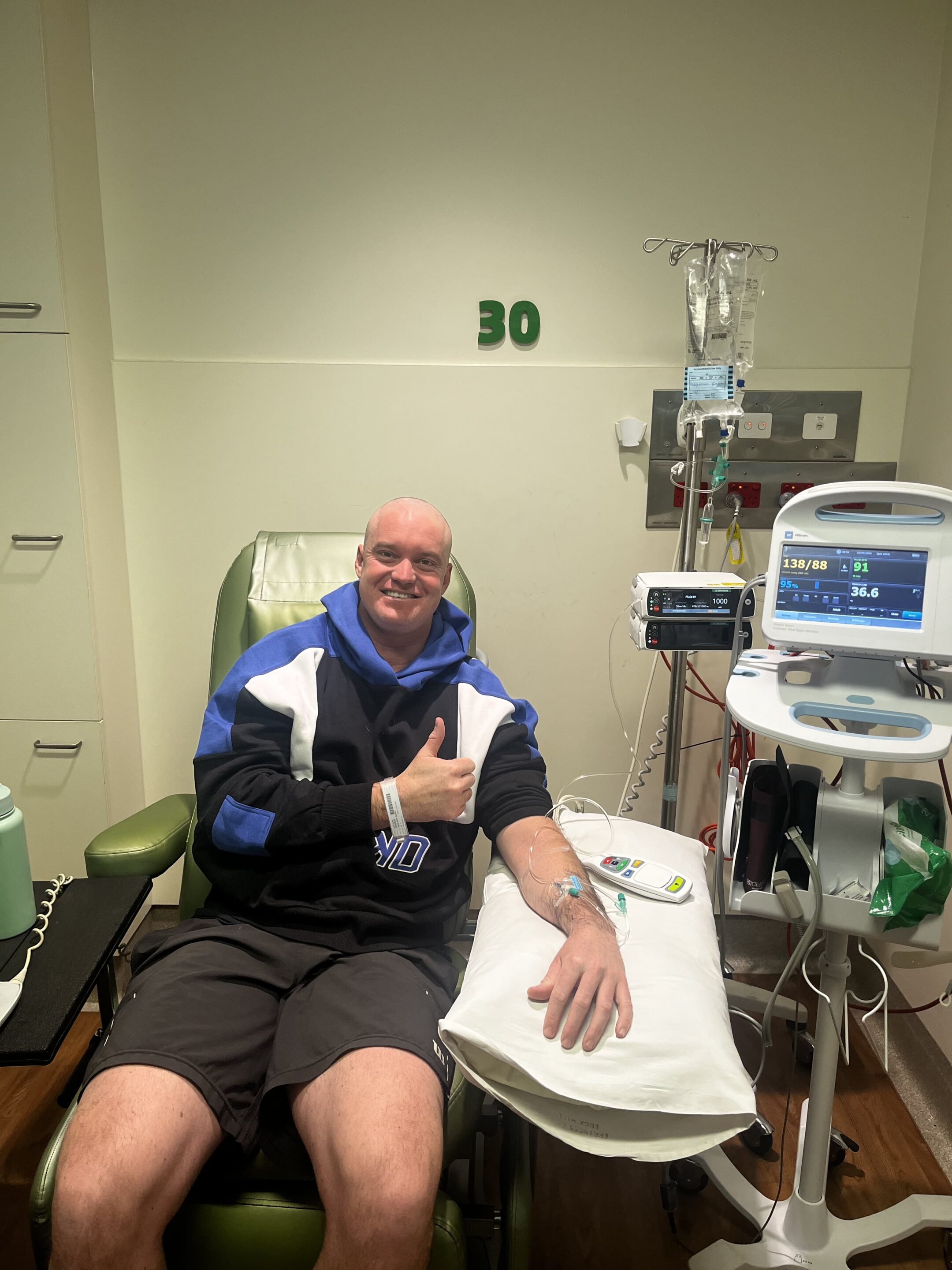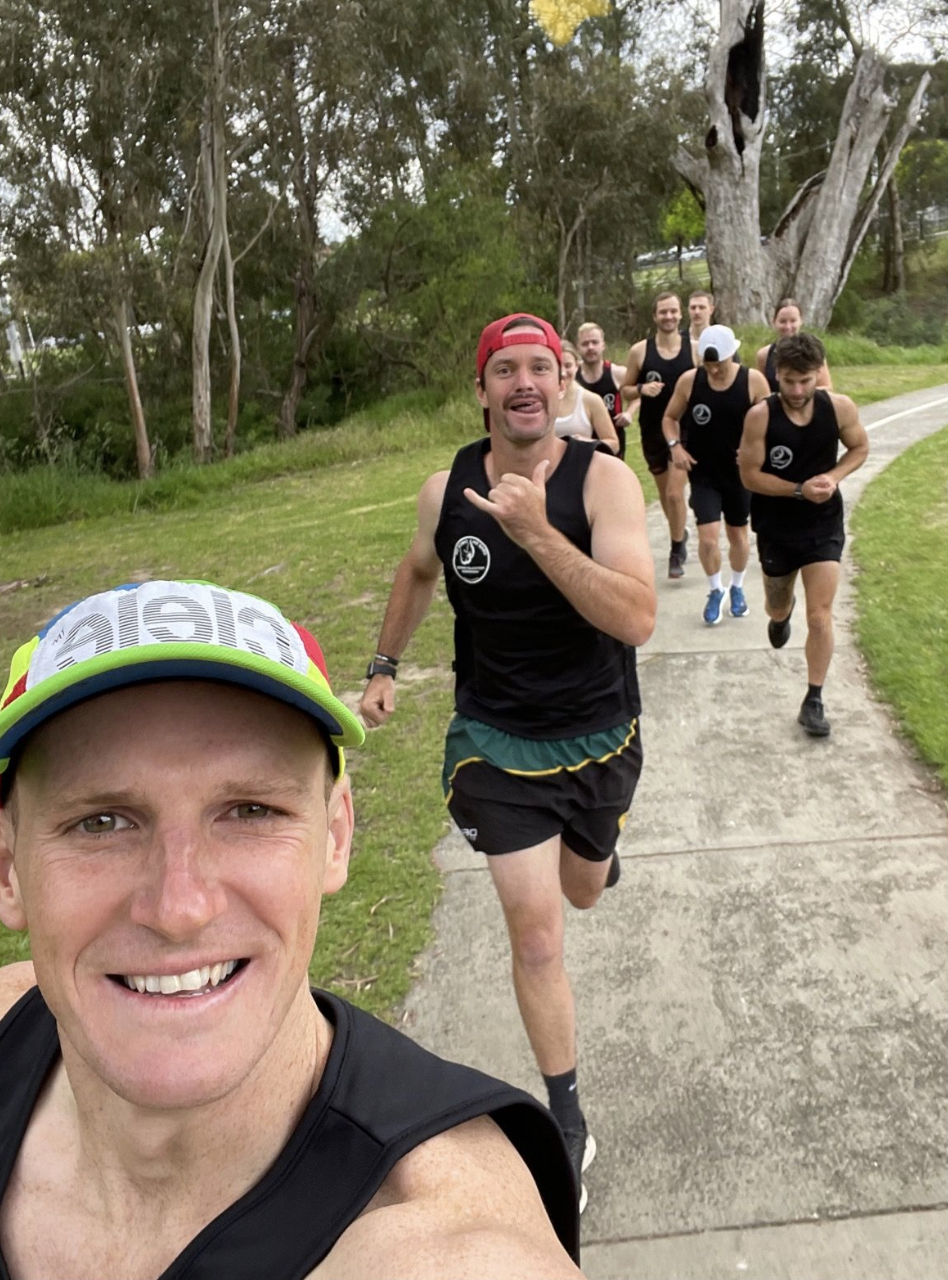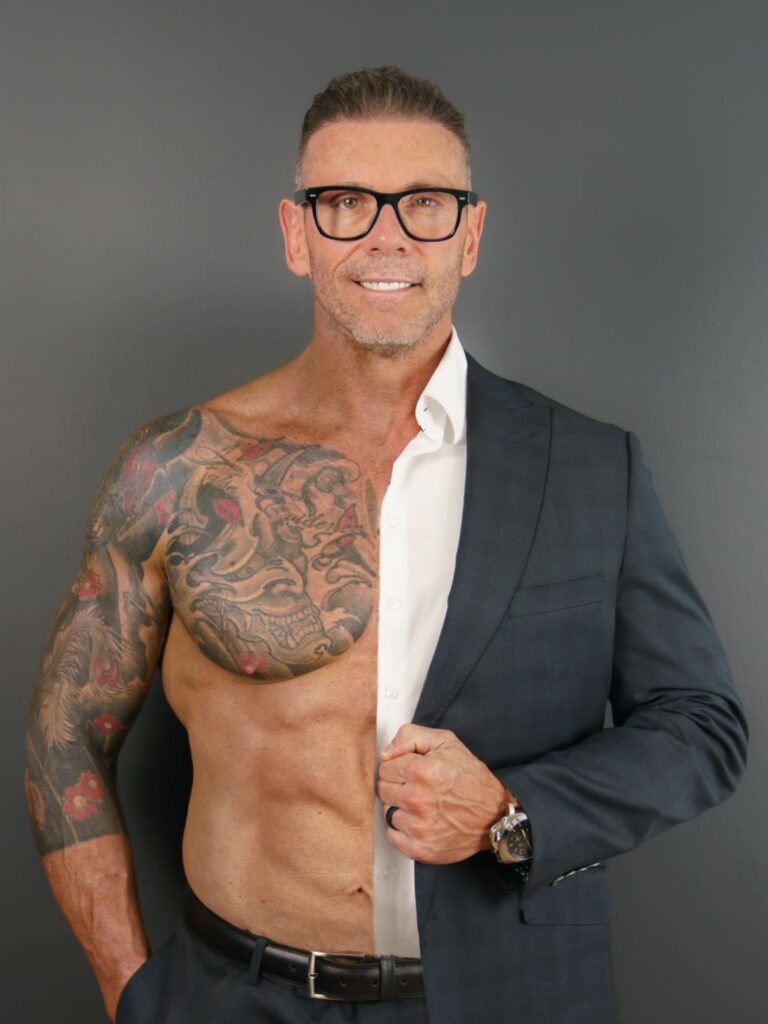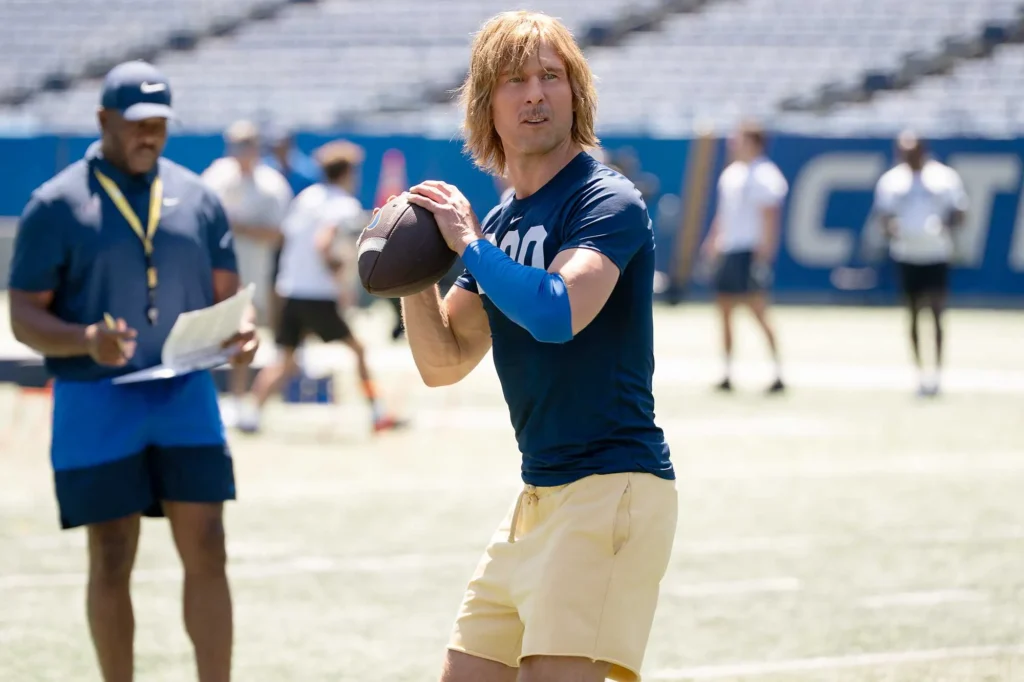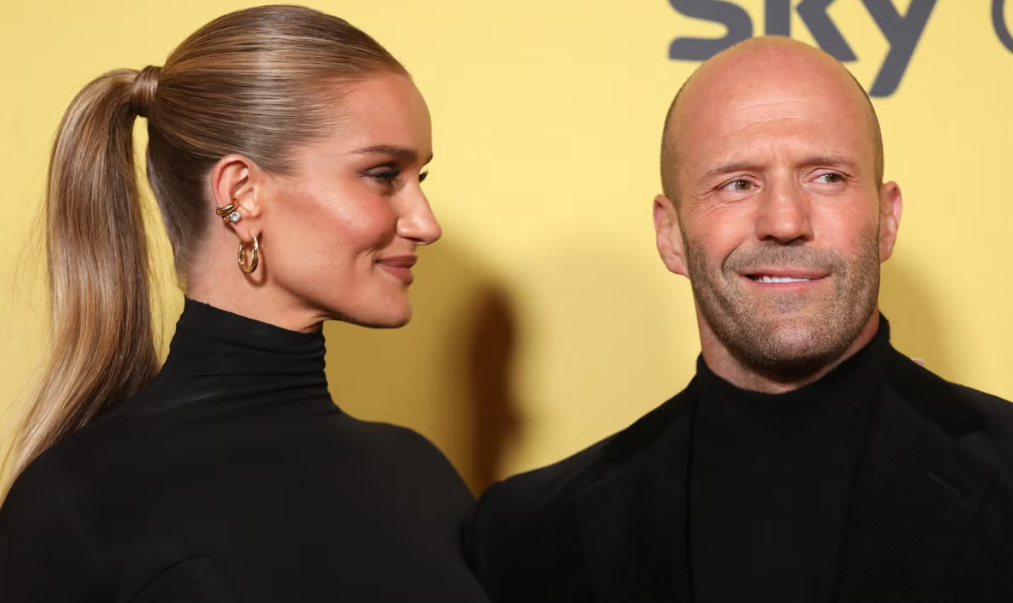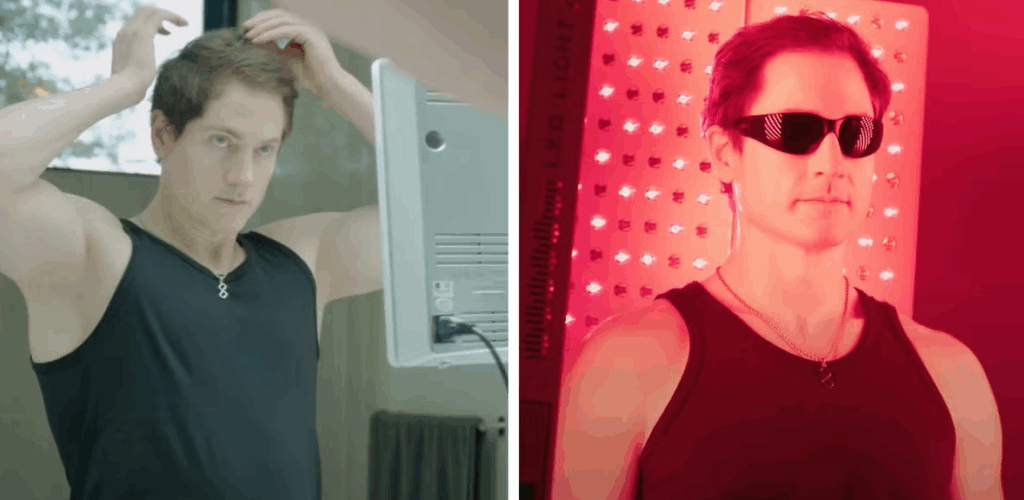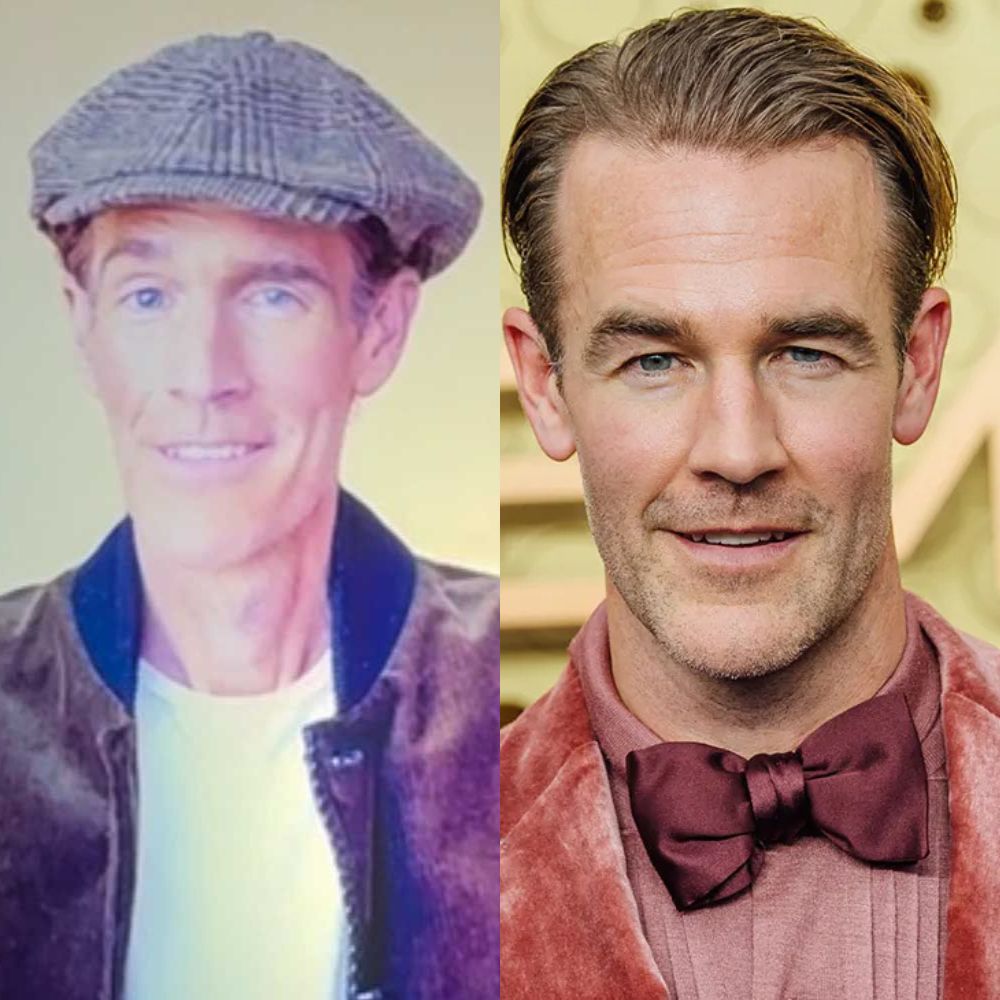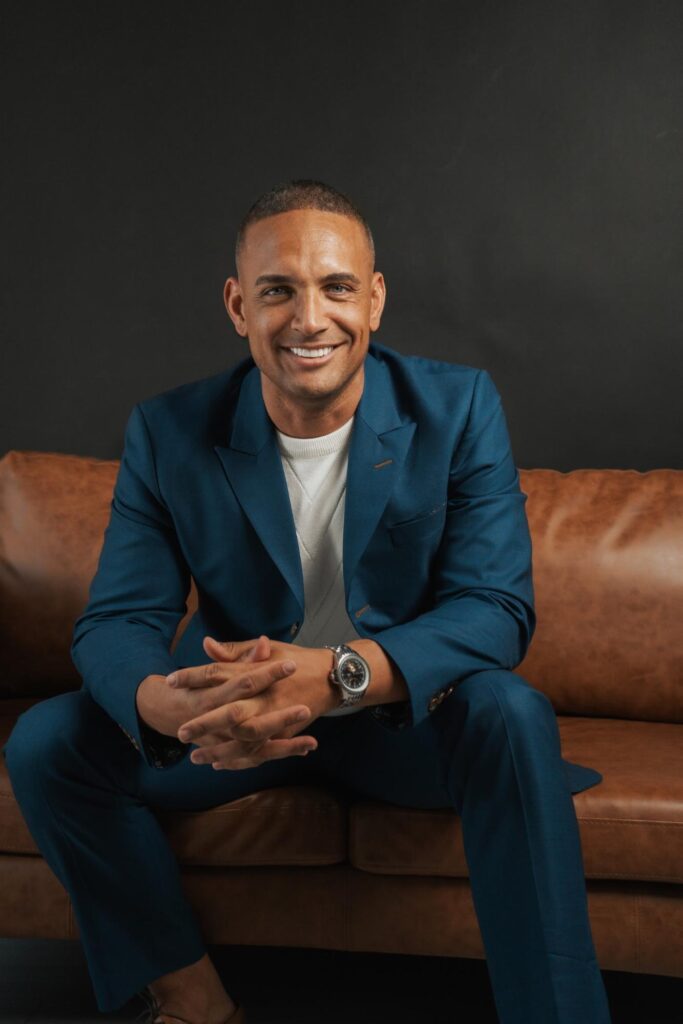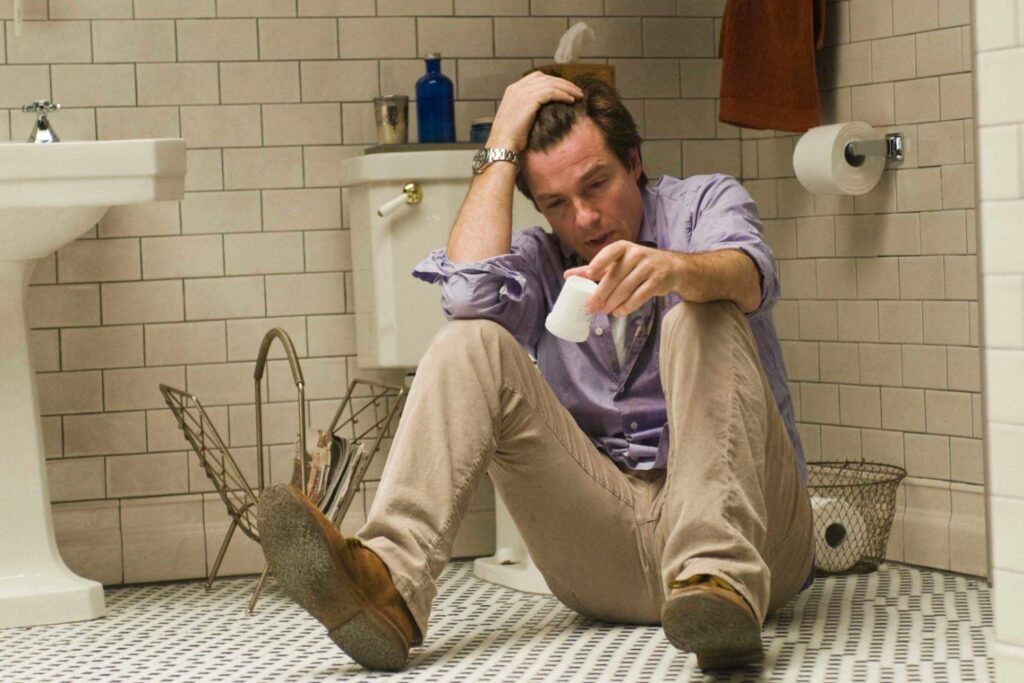JAYDEN NEILSON WASN’T thinking about cancer the Sunday afternoon when he first noticed something might be wrong. He was thinking about his golf swing, the cold beers waiting for him back home, and the footy game playing on the big screen. But then everything changed.
“I went to take a piss, and my left testicle was about the size of a lemon,” Neilson recalls during a chat with Men’s Health. “I didn’t have any pain leading up to it, I didn’t feel it swelling up. Nothing.”
By the next day, he was in a doctor’s office. That afternoon, he had an ultrasound. Less than an hour later, the call came: “Can you get back here within ten minutes?” That’s when Neilson realised his world was about to turn upside down. He had testicular cancer.
In less than two weeks, his left testicle was removed. A month shy of his 30th birthday, instead of planning a European getaway, he was freezing sperm and wondering if he’d ever have kids. The physical recovery was relatively quick, but the mental battle was just beginning. “At that point, the thing I was most worried about was fertility,” he admits. “I had always wanted kids, and suddenly I was wondering if I would ever have them.”
Four years later, just as life was settling back into normalcy, cancer struck again. This time, surgery wasn’t an option. The only way forward was chemotherapy, a brutal nine-week ordeal made even harder by the fact that his wife was 32 weeks pregnant with their second child. “The last six weeks were absolute hell. I could barely get out of bed, couldn’t pick up my daughter, just lay there with my head in a bucket,” he says.
Neilson got through it. But as he’s learned, testicular cancer isn’t just something you beat and move on from. It lingers in your mind, in the scars you see every day, in the routine scans that still make you wonder if it’ll ever come back. “So many people think it’s over once the chemo’s done,” he says. “It’s not. It’s something you live with.”
Believe it or not, Neilson is one of the lucky ones. Both times, he was able to detect the cancer early, but not everyone is so lucky. According to Movember, 76 per cent of young Australian men don’t know that their demographic is at risk of testicular cancer. Three quarters of young men don’t even know how to check for signs of testicular cancer.
That’s a problem Neilson wants to fix. He’s now a Movember Ambassador, and he’s using his story to ensure no one ignores the warning signs. Through his “Grab & Check ’Em” events and as a Movember Ambassador, he’s sending a simple message to young men: know your nuts. Trust your gut. If something feels off, get it checked, because cancer doesn’t wait.
Here, in his own words, Neilson takes us through his experiences with testicular cancer.
“I never saw Testicular cancer coming. I was playing golf with a mate on a Sunday afternoon and afterwards we were having a few beers and watching the footy. At one point I went to take a piss and my left testicle was about the size of a lemon. I didn’t have any pain leading up to it, I didn’t feel it swelling up, nothing.
I went to the doctor the next day and they sent me straight off for an ultrasound. They told me they’d get back to me the next day with my results. Less than an hour later they called me back and said ‘Can you get back here within ten minutes’.
The doctor told me that there’s five things they look for to diagnose testicular cancer, and that I had all five. From there, everything just went numb. I felt like my whole world had been turned upside down. I was never thinking that I had testicular cancer. I thought maybe I’d just knocked it or twisted it and that had made it get swollen.
To be honest, I didn’t really know anything about testicular cancer at the time. Like a lot of people, I fell into that boat of thinking that cancer was just for old people, not someone who was 29. I had no idea of how to check for signs of testicular cancer before my diagnosis. I had a broad idea of how you were supposed to feel your nuts, but not what to actually look for or how to check properly. I never checked.
The following week, I was already in for surgery. There was only about a week and a half between discovering that something was wrong and having the surgery. It all happened very fast.
At that point, the thing I was most worried about was fertility. I had always wanted kids, and all of a sudden I was wondering if I would never have them. All of a sudden I was at a sperm bank, and wanking into a cup was never my idea of what the start of having kids would be like.
I didn’t love that I had to start telling people that I only had one testicle. I was still playing footy at the time and was worried people were going to have a go at me in the showers and say things like ‘You’ve only got one nut’. The insecurities were definitely there, I just wanted to be seen as normal. Eventually I started owning it and thinking Just because I’ve only got one nut, it doesn’t mean I’m any different to anyone else.
Once you recover from testicular cancer, you start a five-year cycle of regular checks where you do blood tests three times a year, two scans every year for the first two years, and one scan every year for the next three years. After that, you go back to normal, no check ups.
They picked up the cancer the second time during a scan four years after the first cancer was removed. Surgery wasn’t an option because of where they found the cancer, very close to a main artery. Chemotherapy was the only option.
Even before going through chemo, I had to deal with a bunch of mental challenges again. My wife was 32 weeks pregnant at the time, so I had to wonder if I was going to be able to be there for the birth. The last six weeks of chemotherapy was absolute hell. We had a two-year-old daughter running around, and like I said my wife was pregnant, and all I could do was lay around in bed, with my head in a bucket unable to get the energy to even pick my daughter up. It was torture.
Now, even though they’ve said chemo has killed it all and that I’ll be fine, I still find myself sitting up at night thinking, If this comes back again, I won’t be shocked. If it’s come back once, why wouldn’t it happen again? Whenever I get a message reminding me that I’ve got a scan coming up, I’m scared. So many people that don’t go through stuff like this think that it’s over once the surgery’s done or the chemo’s done. It’s not. Every time I have a shower I see that scar. It’s a reminder that I still have to live with this experience.
I still remember what my oncologist told me when he diagnosed me. He said ‘If you were to get cancer, this is the type you’d want to get’. That still doesn’t really sit right with me. I don’t think we should have this belief where we just assume that because it’s testicular cancer we’ll be fine. The stats show that 97 per cent of people will survive it, but there are all sorts of other issues that can spring up from it even if you do survive it. People need to know how to check for it so they can get on top of it quickly. If they don’t it could be too late.
Related:
Meet Tom Haddon, a testicular cancer survivor raising awareness and breaking down stigma
Keegan Hipgrave and Konrad Bien-Stephen bare all for Movember




